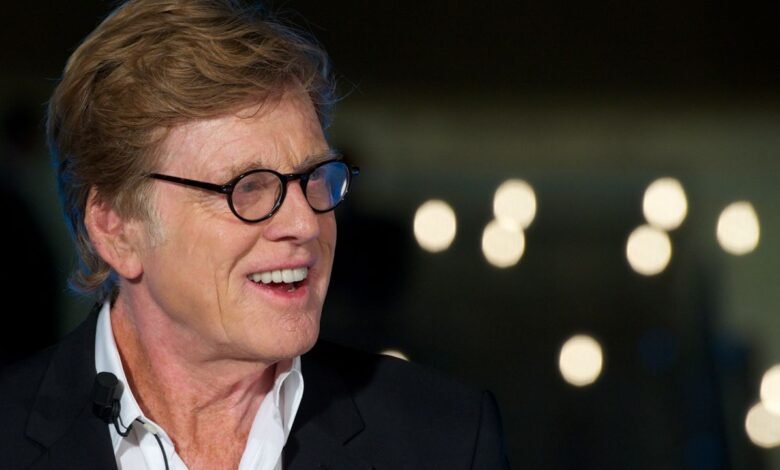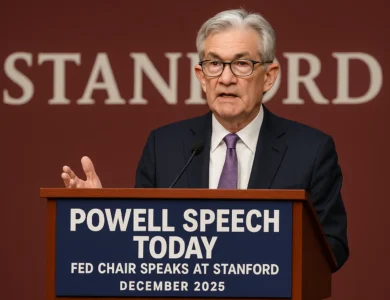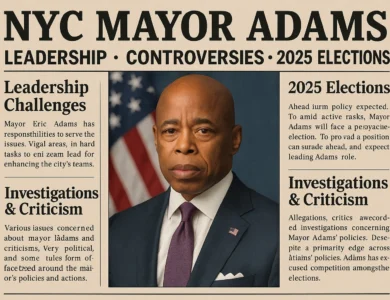
Robert Redford movies have captivated audiences for over five decades, establishing him as one of Hollywood’s most influential actors and filmmakers. Born Charles Robert Redford Jr. in 1936, this legendary performer transformed from a struggling television actor into a cinematic icon whose work continues to inspire new generations of movie enthusiasts. His golden locks, piercing blue eyes, and natural charisma made him a leading man who could effortlessly transition between romantic dramas, action thrillers, and thought-provoking character studies.
The Robert Redford legacy extends far beyond his on-screen performances. As the founder of the Sundance Film Festival and a passionate advocate for independent cinema, Redford has shaped the landscape of American filmmaking in ways that few actors have achieved. His commitment to environmental causes and social justice has also made him a respected figure outside of Hollywood, proving that celebrity influence can be wielded responsibly and meaningfully.
Throughout his illustrious career, Redford’s filmography encompasses a remarkable range of genres and collaborations with some of cinema’s greatest directors. From his breakthrough role in “Barefoot in the Park” to his Oscar-winning directorial debut “Ordinary People,” Redford has consistently chosen projects that challenge both himself and his audiences. This comprehensive exploration of his greatest films reveals not only the evolution of a remarkable talent but also the changing face of American cinema itself.
1. Butch Cassidy and the Sundance Kid (1969): The Birth of a Star
The Western That Changed Everything
“Butch Cassidy and the Sundance Kid” represents the film that truly launched Robert Redford’s career into the stratosphere. Starring alongside Paul Newman, Redford portrayed the charismatic outlaw Harry Alonzo Longabaugh, better known as the Sundance Kid. This classic Western redefined the genre by infusing it with humor, modern sensibilities, and a bromance that would become legendary in Hollywood history.
Director George Roy Hill created a film that was both a loving tribute to and a gentle parody of traditional Westerns. The movie’s success wasn’t just due to its innovative approach to the genre, but also the undeniable chemistry between its two leads. Redford’s performance as the quietly confident, quick-draw artist perfectly complemented Newman’s more gregarious Butch Cassidy, creating a dynamic that would influence buddy films for decades to come.
The film’s impact on American cinema cannot be overstated. It earned four Academy Award nominations and won for Best Original Screenplay, Best Original Score, and Best Cinematography. More importantly, it established Redford as a major movie star and set the stage for numerous collaborations with Newman that would define both actors’ careers.
2. The Sting (1973): A Masterclass in Ensemble Acting
Reuniting for Cinema Gold
Following the massive success of their first collaboration, Robert Redford and Paul Newman reunited for “The Sting,” a Depression-era con artist caper that would become one of the most beloved films of the 1970s. Directed once again by George Roy Hill, this Academy Award-winning film showcased Redford’s versatility as an actor capable of handling complex, multi-layered narratives.
In “The Sting,” Redford played Johnny Hooker, a small-time grifter who becomes involved in an elaborate revenge scheme against a ruthless mob boss. The film’s intricate plot, featuring multiple twists and turns, required Redford’s character to navigate a world of deception while maintaining the audience’s sympathy and engagement. His performance demonstrated a maturity and sophistication that proved his leading man status was no fluke.
The film’s success was unprecedented, earning seven Academy Awards including Best Picture, Best Director, and Best Original Screenplay. Robert Redford’s contribution to this success cannot be understated, as his ability to convey both vulnerability and cunning made Johnny Hooker a compelling protagonist in an ensemble cast that included legendary actors like Robert Shaw and Charles Durning.
3. The Way We Were (1973): Romance and Social Commentary
A Love Story That Transcends Time
“The Way We Were” paired Robert Redford with Barbra Streisand in what would become one of the most memorable romantic dramas of the 1970s. Playing Hubbell Gardiner, a privileged, politically apathetic writer, Redford’s performance created a complex character whose relationships and choices reflected the broader social and political tensions of mid-20th century America.
The film’s exploration of the relationship between the idealistic Katie Morosky (Streisand) and the more conventional Hubbell provided Redford with an opportunity to showcase his dramatic range. His portrayal of a man caught between personal comfort and social responsibility resonated with audiences navigating their own political and social awakening during the turbulent 1970s.
“The Way We Were” was both a commercial and critical success, earning six Academy Award nominations and winning for Best Original Song. Redford’s chemistry with Streisand created one of cinema’s most poignant love stories, proving that his appeal extended beyond action and adventure into more intimate, character-driven narratives.
4. All the President’s Men (1976): Journalism as Hero’s Journey
Investigative Reporting Meets Hollywood Drama
Perhaps no Robert Redford movie has had a greater impact on American culture and politics than “All the President’s Men.” Starring as Washington Post reporter Bob Woodward, Redford helped bring the Watergate investigation to life in a way that made investigative journalism both compelling and heroic. This political thriller demonstrated Redford’s commitment to socially important filmmaking.
Working alongside Dustin Hoffman as Carl Bernstein, Redford’s portrayal of the methodical, determined Woodward showed a different side of his acting abilities. Rather than relying on his natural charisma and leading man appeal, Redford created a character defined by intellectual curiosity and moral conviction. The film’s realistic approach to depicting the painstaking work of investigative reporting made journalism careers appealing to a generation of young Americans.
“All the President’s Men” earned eight Academy Award nominations, winning four, including Best Adapted Screenplay. The film’s influence extended far beyond entertainment, contributing to a renewed respect for investigative journalism and demonstrating Hollywood’s power to address serious political and social issues through compelling storytelling.
5. The Natural (1984): Baseball and American Mythology
Sports Drama Meets Arthurian Legend
“The Natural” showcased Robert Redford in one of his most iconic roles as Roy Hobbs, a baseball player with almost mythical abilities. This sports drama blended elements of American folklore with the classic underdog story, creating a film that resonated with audiences on multiple levels. Redford’s performance captured both the physical demands of professional baseball and the emotional complexity of a man seeking redemption.
The film’s visual style, enhanced by Caleb Deschanel’s cinematography, created a dreamlike quality that elevated the story beyond typical sports movies. Redford’s portrayal of Roy Hobbs drew on archetypal themes of heroism, fall from grace, and ultimate redemption that connected with fundamental aspects of the American experience.
While “The Natural” received mixed critical reviews, Redford’s performance and the film’s stunning visual presentation have made it a beloved classic among baseball movie enthusiasts. The film’s exploration of talent, corruption, and second chances provided Redford with material that allowed him to demonstrate both physical prowess and emotional depth.
6. Out of Africa (1985): Epic Romance and Colonial Reflection
Love Story Against Historical Canvas
“Out of Africa” paired Robert Redford with Meryl Streep in an epic romance set against the backdrop of colonial Kenya. Playing Denys Finch Hatton, a free-spirited big game hunter and aviator, Redford created a character that embodied both the romantic ideal of adventure and the complex realities of colonial relationships with Africa.
The film’s sweeping cinematography and Howard Shore’s memorable score provided the perfect backdrop for Redford’s nuanced performance. His portrayal of Finch Hatton required him to balance the character’s appeal and charisma with the more problematic aspects of his colonial perspective, creating a performance that was both romantic and thoughtfully complex.
“Out of Africa” became both a critical and commercial success, earning eleven Academy Award nominations and winning seven, including Best Picture. Redford’s contribution to this success demonstrated his ability to anchor large-scale, prestige productions while maintaining the intimate character work that had always been his strength.
7. The Horse Whisperer (1998): Director and Star
Behind and In Front of the Camera
“The Horse Whisperer” marked Robert Redford’s ambitious attempt to both direct and star in a complex family drama. Playing Tom Booker, a Montana rancher with an almost mystical ability to communicate with troubled horses, Redford created a character that reflected many of his own values regarding nature, healing, and the American West.
As both director and actor, Redford faced the challenge of maintaining objectivity about his own performance while managing the film’s overall vision. His direction emphasized the natural beauty of Montana landscapes while exploring themes of trauma, healing, and the connections between humans and animals.
While “The Horse Whisperer” received mixed critical reviews, Redford’s dual role demonstrated his continued evolution as a filmmaker. The film’s focus on environmental themes and rural American values reflected Redford’s personal interests and his commitment to using cinema as a platform for exploring important social and environmental issues.
8. Spy Game (2001): Mentorship and Espionage
The Veteran Intelligence Officer
In “Spy Game,” Robert Redford played Nathan Muir, a veteran CIA operative on his last day before retirement. Paired with Brad Pitt as his former protégé, Redford delivered a performance that combined the wisdom of experience with the cunning required for intelligence work. This espionage thriller allowed Redford to explore themes of mentorship, loyalty, and the moral complexities of covert operations.
Redford’s portrayal of Muir showcased his ability to convey intelligence and authority while maintaining the character’s human vulnerabilities. The film’s structure, which used flashbacks to reveal the relationship between Muir and his protégé Tom Bishop (Pitt), required Redford to portray his character across different time periods and circumstances.
“Spy Game” was both a commercial success and a showcase for Redford’s continued relevance in contemporary action cinema. His performance demonstrated that his appeal as a leading man could evolve with age, taking on roles that emphasized wisdom and experience rather than just physical charisma.
9. The Company You Keep (2012): Political Thriller and Personal Journey
Directing and Starring in Contemporary Drama
“The Company You Keep” represented Robert Redford’s return to politically charged material, both as director and star. Playing Jim Grant, a former Weather Underground activist living under an assumed identity, Redford explored themes that had interested him throughout his career: political activism, personal responsibility, and the long-term consequences of youthful idealism.
The film’s ensemble cast, including Shia LaBeouf, Julie Christie, and Susan Sarandon, provided Redford with strong supporting performances that enhanced his own work as both actor and director. His portrayal of Grant required him to convey the weight of decades-old secrets while maintaining the character’s essential humanity.
“The Company You Keep” demonstrated Redford’s continued commitment to socially relevant filmmaking. While not a major commercial success, the film showcased his ability to tackle contemporary political issues while maintaining the nuanced character work that had always been his strength.
10. Our Souls at Night (2017): Late-Career Intimacy
A Tender Performance in Life’s Later Chapters
“Our Souls at Night” paired Robert Redford with Jane Fonda in a gentle, intimate drama about companionship in later life. Playing Addie Moore’s neighbor Louis Waters, Redford delivered one of his most subtle and affecting performances, exploring themes of loneliness, connection, and the possibility of finding love at any stage of life.
The film’s quiet, contemplative approach allowed Redford to demonstrate how his acting had evolved over decades of experience. His chemistry with Fonda, with whom he had previously appeared in “Barefoot in the Park” and “The Electric Horseman,” created a performance that felt both familiar and fresh.
“Our Souls at Night” served as a fitting capstone to Redford’s acting career, though he would continue to appear in films afterward. The performance showcased his ability to find depth and meaning in simple, human stories, proving that his appeal as an actor extended far beyond the action and adventure roles that had initially made him famous.
Conclusion
The Robert Redford movies explored in this comprehensive overview represent more than just entertainment; they constitute a significant portion of American cinema history. From his early breakthrough in “Butch Cassidy and the Sundance Kid” to his later, more contemplative work in “Our Souls at Night,” Redford’s filmography demonstrates remarkable range, consistency, and artistic growth.
What sets Robert Redford apart from many of his contemporaries is his commitment to using his celebrity platform for meaningful purposes. Whether through his performances in politically charged films like “All the President’s Men” or his behind-the-scenes work fostering independent cinema through Sundance, Redford has consistently demonstrated that Hollywood success can be leveraged for positive social impact.
The enduring popularity of these Robert Redford films speaks to their universal themes and the actor’s ability to connect with audiences across generations. His cinematic legacy continues to influence contemporary filmmakers and actors, proving that great art truly is timeless.
Read More: Adam Schiff’s 5 Bold Moves That Shocked Political Critics






